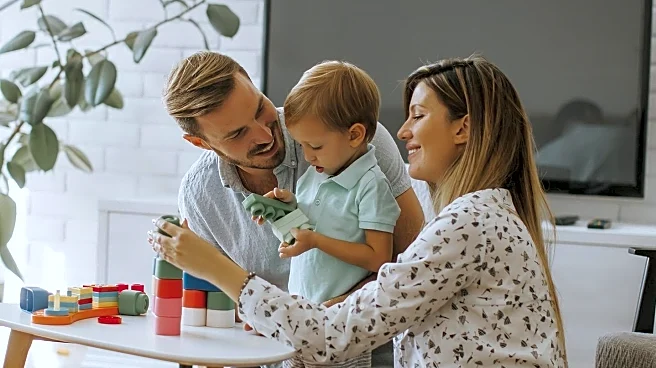What is the story about?
What's Happening?
An individual recounts how the film 'The Parent Trap' inspired them to reconnect with their estranged biological father. The narrative describes the emotional journey of seeking a relationship with a father who left when the author was two years old. Despite the anticipation of a heartfelt reunion, the experience was marked by disappointment and realization that the father was not the person the author had imagined. The story highlights the influence of cultural media on personal decisions and the eventual understanding that family bonds can be formed with those who are present and supportive, rather than those who are absent.
Why It's Important?
This story illustrates the powerful impact of cultural media on personal identity and family relationships. Films like 'The Parent Trap' can shape expectations and inspire actions, even leading individuals to confront complex family dynamics. The narrative underscores the importance of recognizing and valuing the family members who provide emotional support and stability, rather than idealizing absent figures. This reflects broader societal trends in redefining family as a supportive network rather than a biological connection.
What's Next?
The author continues to maintain relationships with their stepdad and siblings, who have been a constant source of support. The experience with the biological father serves as a reminder of the importance of nurturing relationships with those who are present and caring. The narrative suggests a continued exploration of identity and family dynamics, influenced by cultural media and personal experiences.
Beyond the Headlines
The story raises questions about the role of cultural media in shaping personal narratives and expectations. It explores the emotional complexities of reconnecting with estranged family members and the potential for disappointment when reality does not match idealized images. The narrative suggests a shift towards valuing emotional connections and chosen family bonds, reflecting broader cultural changes in how family is perceived.
















